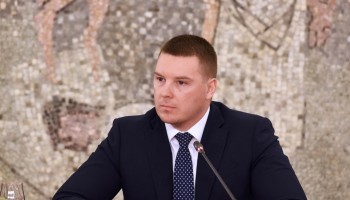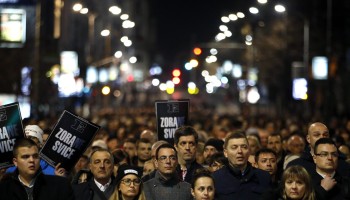He continued to characterize the initial proceedings as a failure. “Whether by design or ineptitude, the police appear to have botched the initial phase of the Kyulev investigation. Photographs widely circulated on the Internet, for example, show a large group of police officers trampling the crime scene without any apparent overall direction. As one of our Bulgarian contacts said ruefully, ‘This is not CSI,’” he wrote, saying it is still “too early to tell” if the Bulgarian government is “serious about taking on organized crime.”
The ambassador wrote also that investigators were loathe to take U.S. assistance because “It is almost inevitable that a thorough investigation of organized crime in Bulgaria would reveal financial links to politicians from all of the major parties.”
One month later in a follow-up cable, the ambassador remained critical of the Bulgarian authorities. He noted that despite more than 1,000 arrests, “the police and Interior Ministry have yet to conduct a thorough investigation of the murder, possibly out of concern about revealing Kyulev's links to prominent political figures.”
Beyrle concluded that: “Part of the problem clearly lies in the technical incompetence and lack of solid investigative skills, resources, and cooperation among the law enforcement services.” The other problem, he wrote, was that many Bulgarian government officials were “unwilling to see a real investigation go forward that would shine a light into the darker corners of political activity here, especially regarding party funding.”
No one has been found guilty of Kyulev’s 2005 murder, although the police believe that members of the criminal gang known as “The Killers” are behind it.





